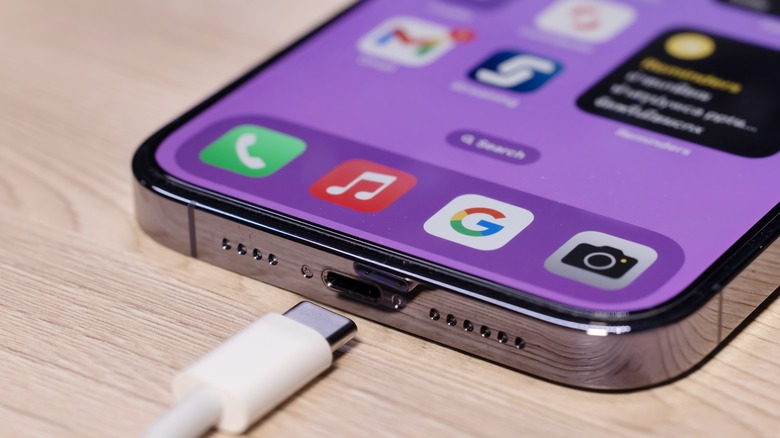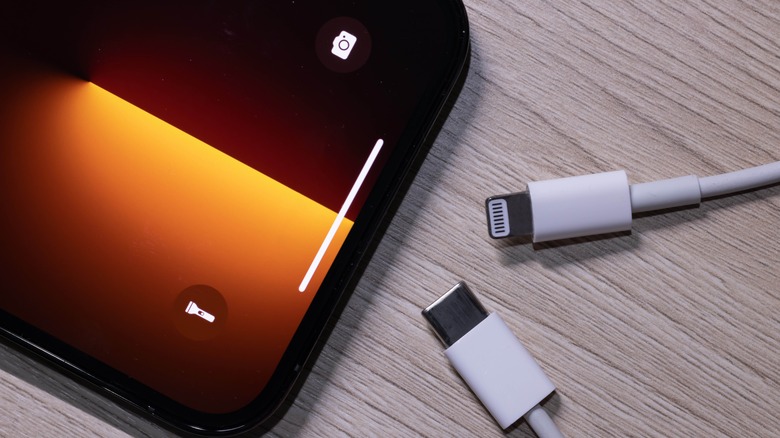Europe Will Officially Force iPhone To Switch To USB-C By End Of 2024
Even though countries in the European Union have been pushing for a common charging standard for nearly a decade, legally mandating device manufacturers to comply was not an easy process. After trying for years, EU member states finally set the ball rolling for the common charger mandate to be made into a law in 2020. The first step in this direction required the European Parliament to pass a resolution recommending the adoption of a common charging standard. It would take the EU two more years to make further progress.
In June 2022, the European Parliament took another step after it amended something known as the Radio Equipment Directive to mandate a single charging solution across Europe. Four months later, in October 2022, EU member states gave the final go-ahead for the common charger mandate to be made into a law. After it became clear that there would be no way of getting around this mandate, Apple — the most vociferous opponent to the proposal — agreed to comply.
However, the common charger mandate still needed to be officially made into law. That changed today, December 8, 2022, after it made it to the Official Journal of the EU — which makes it formally binding on member states and companies operating within the EU. According to the official EU Law database, the law will enter into force starting December 27, 2022 — a little over three weeks away. While the law goes into effect just 20 days from now, device manufacturers operating in the EU have ample time to make changes to the charging standards on their products. This is because the mandate will only apply to handheld devices sold in the EU after December 28, 2024.
What happens next?
Most device manufacturers affected by the EU's common charger law were aware of the dates even before the law made it to the official EU journal. For the same reasons, most of them have already started the process to comply. This includes Apple, which is likely to launch its next-generation iPhones with a USB-C port instead of the Lightning Port.
However, despite the switch to a supposedly faster-wired connectivity standard, owners of lower-priced iPhones may not reap its benefits since it is now rumored that Apple may reserve faster transfer speeds for its more expensive models. If that wasn't all, it is also thought that Apple's hesitant move to support USB-C might just be a stopgap measure. The company's long-term goal, apparently, is to move to completely portless devices that will only charge wirelessly, thereby bypassing the common charger law. As of now, the common charger law does not apply to devices that only charge wirelessly.
Besides smartphones, the USB-C mandate also applies to many other products ranging from digital cameras and headphones to handheld video game consoles and portable speakers. Even laptop manufacturers will need to adhere to the new standards. However, these machines have until April 2026 to comply.

